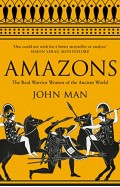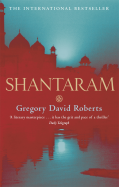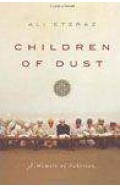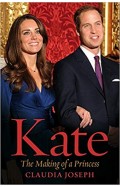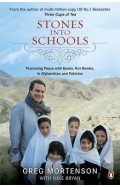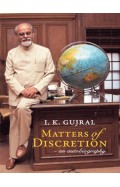Anthro-Vision: How Anthropology Can Explain Business and Life
By: Gillian Tett
-
Rs 2,236.00
- Rs 2,795.00
- 20%
You save Rs 559.00.
Due to constant currency fluctuation, prices are subject to change with or without notice.
A revelatory model that explains how we buy, sell, work and live.
'Absolutely brilliant.' DANIEL KAHNEMAN
'Will turn your world upside down in the best possible way. Fun, profound and bursting with important insights.' TIM HARFORD
'Anyone working to rebuild a more equal world will benefit from Tett's well-argued case that to solve twenty-first-century problems, we must expand our fields of vision and fill in old blind spots with new empathy.' MELINDA GATES
___
For over a century, anthropologists have immersed themselves in unfamiliar cultures, uncovering the hidden rituals that govern how people act. Now, a new generation of anthropologists are using these methods in a different context - to illuminate the behaviour of consumers and businesses at home.
In Anthro-Vision, Gillian Tett - bestselling author, Financial Times journalist, and anthropology PhD - reveals how anthropology can make sense of people's behaviour, in business and beyond. She outlines how anthropology helps explain consumer habits - revealing the 'webs of meaning' that underpin how we shop, and unpicking the subtle cultural shifts driving the rise of green investment. She explores how anthropology can shed light on the workplace, identifying the hidden tribes within the office, and pinpointing which rituals are binding together a team. And she shows how we can all use anthropology in our own lives, too: helping us make better decisions, navigate risk - even work out what our peers are really thinking.
Along the way, Tett draws on stories from Tajik villages and Amazon warehouses, Japanese classrooms and Wall Street trading floors, all to reveal the power of anthropology in action.
The result is a wholly new way to make sense of human behaviour. In a short-sighted world, we can all learn to see clearly - using the power of Anthro-Vision.
__
One of the World's Top 50 Thinkers - Prospect
'Tett provides readers with a new intellectual framework - grounded in her deep understanding of anthropology and her path-breaking journalism - that can fundamentally transform how we approach solving society's most wicked problems . . . I cannot recommend it highly enough.' MARIANA MAZZUCATO
'A fascinating and compelling demonstration that all of us, especially economists, can benefit from the insights of anthropology: the worm's-eye, not just the bird's-eye, view of how people behave.' MERVYN KING
'In a world of volatility, uncertainty, complexity, and ambiguity, we need an antidote to tunnel vision, argues Gillian Tett. That antidote is Anthro-Vision . . . Admirers of her journalism will love this book, but they will also learn a great deal from it.' NIALL FERGUSON
'Looking at the world like an anthropologist has long given Gillian Tett the edge over the rest of us as a journalist and thinker. With this book she generously shares her secret recipe - and explains why we may all need Anthro-Vision to see a way through some of today's most pressing global challenges.' STEPHANIE FLANDERS
'In an age obsessed with hard science, it's becoming painfully obvious that the so-called "soft" subjects - social sciences and the humanities - have the power to reveal what otherwise remains obscure. One of the glories of Anthro-Vision is that it never argues (as many do) that its way of seeing is the only way. It's a timely call for decision-makers to wean themselves off their dependency on big data and embrace the full complexity of human life.' MARGARET HEFFERNAN, Financial Times
A revelatory model that explains how we buy, sell, work and live.
'Absolutely brilliant.' DANIEL KAHNEMAN
'Will turn your world upside down in the best possible way. Fun, profound and bursting with important insights.' TIM HARFORD
'Anyone working to rebuild a more equal world will benefit from Tett's well-argued case that to solve twenty-first-century problems, we must expand our fields of vision and fill in old blind spots with new empathy.' MELINDA GATES
___
For over a century, anthropologists have immersed themselves in unfamiliar cultures, uncovering the hidden rituals that govern how people act. Now, a new generation of anthropologists are using these methods in a different context - to illuminate the behaviour of consumers and businesses at home.
In Anthro-Vision, Gillian Tett - bestselling author, Financial Times journalist, and anthropology PhD - reveals how anthropology can make sense of people's behaviour, in business and beyond. She outlines how anthropology helps explain consumer habits - revealing the 'webs of meaning' that underpin how we shop, and unpicking the subtle cultural shifts driving the rise of green investment. She explores how anthropology can shed light on the workplace, identifying the hidden tribes within the office, and pinpointing which rituals are binding together a team. And she shows how we can all use anthropology in our own lives, too: helping us make better decisions, navigate risk - even work out what our peers are really thinking.
Along the way, Tett draws on stories from Tajik villages and Amazon warehouses, Japanese classrooms and Wall Street trading floors, all to reveal the power of anthropology in action.
The result is a wholly new way to make sense of human behaviour. In a short-sighted world, we can all learn to see clearly - using the power of Anthro-Vision.
__
One of the World's Top 50 Thinkers - Prospect
'Tett provides readers with a new intellectual framework - grounded in her deep understanding of anthropology and her path-breaking journalism - that can fundamentally transform how we approach solving society's most wicked problems . . . I cannot recommend it highly enough.' MARIANA MAZZUCATO
'A fascinating and compelling demonstration that all of us, especially economists, can benefit from the insights of anthropology: the worm's-eye, not just the bird's-eye, view of how people behave.' MERVYN KING
'In a world of volatility, uncertainty, complexity, and ambiguity, we need an antidote to tunnel vision, argues Gillian Tett. That antidote is Anthro-Vision . . . Admirers of her journalism will love this book, but they will also learn a great deal from it.' NIALL FERGUSON
'Looking at the world like an anthropologist has long given Gillian Tett the edge over the rest of us as a journalist and thinker. With this book she generously shares her secret recipe - and explains why we may all need Anthro-Vision to see a way through some of today's most pressing global challenges.' STEPHANIE FLANDERS
'In an age obsessed with hard science, it's becoming painfully obvious that the so-called "soft" subjects - social sciences and the humanities - have the power to reveal what otherwise remains obscure. One of the glories of Anthro-Vision is that it never argues (as many do) that its way of seeing is the only way. It's a timely call for decision-makers to wean themselves off their dependency on big data and embrace the full complexity of human life.' MARGARET HEFFERNAN, Financial Times
Anthro-Vision: How Anthropology Can Explain Business and Life
By: Gillian Tett
Rs 2,236.00 Rs 2,795.00 Ex Tax :Rs 2,236.00
Anthro-Vision: How Anthropology Can Explain Business and Life
By: Gillian Tett
Rs 1,296.75 Rs 1,995.00 Ex Tax :Rs 1,296.75
Zubin Mehta: A Musical Journey (An Authorized Biography)
By: VOID - Bakhtiar K. Dadabhoy
Rs 472.50 Rs 1,050.00 Ex Tax :Rs 472.50
Amazons: The Real Warrior Women of the Ancient World
By: John Man
Rs 1,686.75 Rs 2,595.00 Ex Tax :Rs 1,686.75
Manning Up: How the Rise of Women Has Turned Men into Boys
By: Kay Hymowitz
Rs 646.75 Rs 995.00 Ex Tax :Rs 646.75
Amazons: The Real Warrior Women of the Ancient World
By: John Man
Rs 1,686.75 Rs 2,595.00 Ex Tax :Rs 1,686.75
No recently viewed books available at the moment.
Zubin Mehta: A Musical Journey (An Authorized Biography)
By: VOID - Bakhtiar K. Dadabhoy
Rs 472.50 Rs 1,050.00 Ex Tax :Rs 472.50
Anthro-Vision: How Anthropology Can Explain Business and Life
By: Gillian Tett
Rs 2,236.00 Rs 2,795.00 Ex Tax :Rs 2,236.00
Anthro-Vision: How Anthropology Can Explain Business and Life
By: Gillian Tett
Rs 1,296.75 Rs 1,995.00 Ex Tax :Rs 1,296.75
Amazons: The Real Warrior Women of the Ancient World
By: John Man
Rs 1,686.75 Rs 2,595.00 Ex Tax :Rs 1,686.75











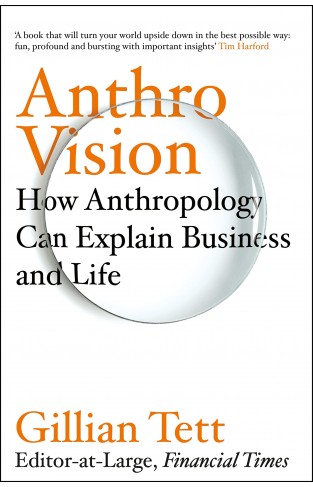
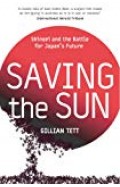

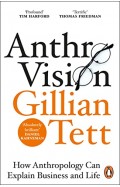
-120x187.jpg?q6)





